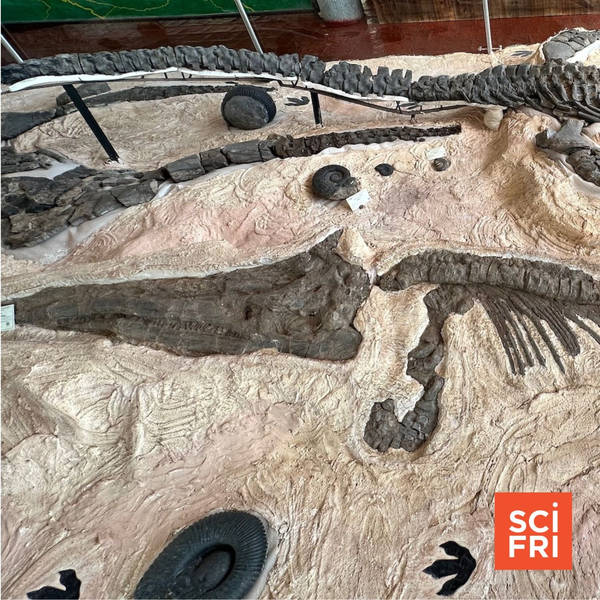
Rapidly Evolving Trout & Ancient Hyper-Apex Predators
Research shows some rapidly evolving trout are altering Wyoming's aquatic ecosystems. Plus, paleontologists pieced together a level of apex predators with no modern equivalent.
In Wyoming’s Mountain Lakes, Stocked Trout Are Evolving Quickly
Anglers across the West love to fish in high, alpine lakes, and Wyoming’s Wind River Range is nearly unbeatable for this experience. Around this time of year, frost covers the tips of trees at sunrise, and there’s plenty of room along the lonesome blue waters above 10,000 feet.
Those who do make the trek—which usually takes more than 15 miles of hiking—are greeted by hungry golden, brook or cutthroat trout looking to fatten up for the winter. They’ll take almost any fly, from a yellow foam grasshopper, to a Parachute Adams to a tiny ant. And the fish are often big, colorful and photogenic.
But as untamed, historic and relaxing as a day on the water feels, it’s anything but natural. New research is shedding light on how the history of fish stocking has impacted alpine lake ecosystems in the Wind Rivers. In many cases, the genetics of trout have evolved rapidly, allowing them to survive in harsh mountain environments.
Read the rest at sciencefriday.com.
Hyper-Apex Predators: Colombian Fossils Reveal Big Reptilians Atop Ancient Marine Food Chain
The Paja Formation, located in central Colombia, is a treasure trove of fossils. The site is integral to scientists’ understanding of ancient creatures who roamed the seas during the Early Cretaceous period, about 130 million years ago.
Now, paleontologists have pieced together the food chain of this marine ecosystem. Surprisingly, they found it supported an additional level of apex predators—think massive marine reptiles—for which there is no modern equivalent.
SciFri producer Kathleen Davis talks with Dirley Cortés, paleontologist at the Centro de Investigaciones Paleontológicas in Colombia and PhD candidate at McGill University’s Redpath Museum, and Dr. Hans Larsson, paleontologist and professor at McGill University’s Redpath Museum. They discuss their fascinating findings, and the importance of better understanding this part of the fossil record.
To stay updated on all things science, sign up for Science Friday's newsletters. Transcripts for each segment will be available the week after the show airs on sciencefriday.com.
Subscribe to this podcast. Plus, to stay updated on all things science, sign up for Science Friday's newsletters.
